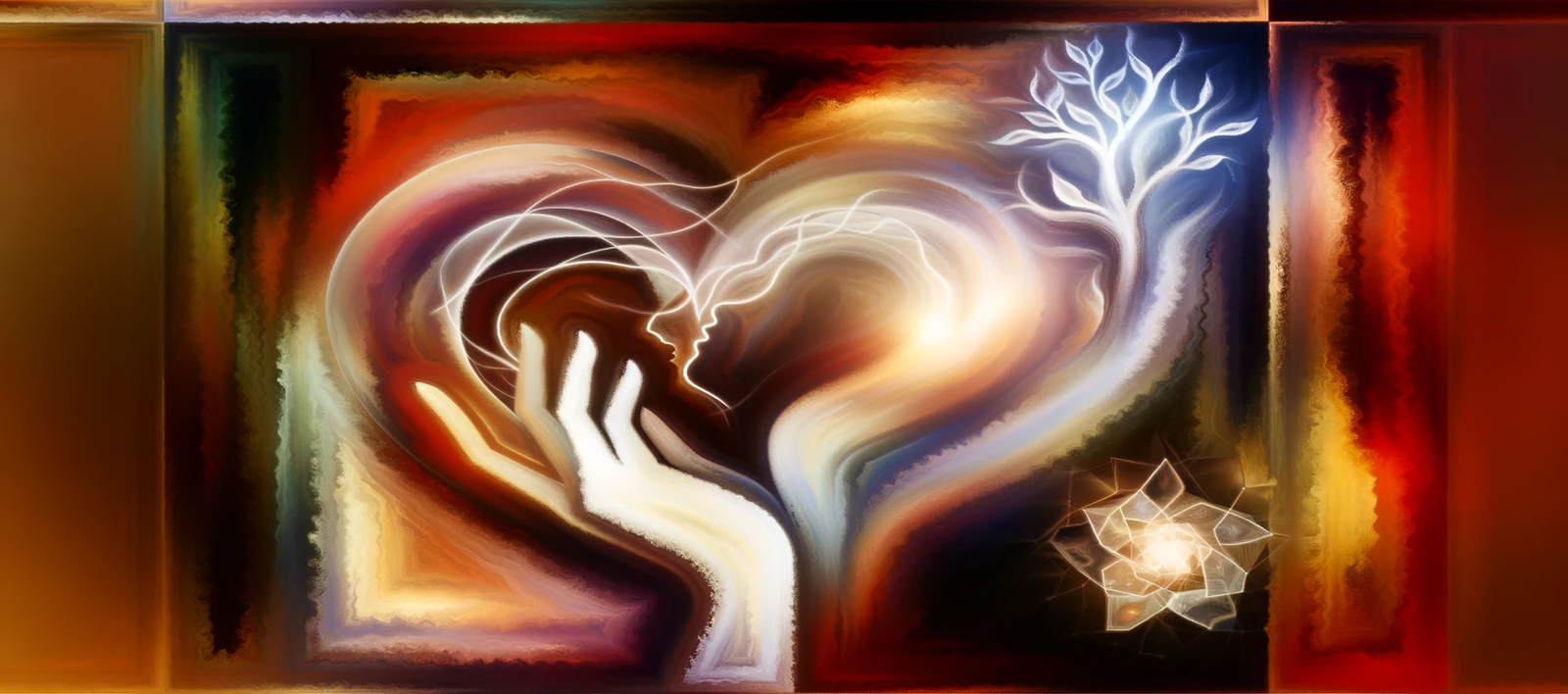The Philosophy of Love | The 7 Love Z
So, what exactly is the philosophy of love? It’s one of those age-old questions that comes up a lot, up but never really gets a straight answer. Even the smartest minds and deep thinkers tend to have no answers when it comes to defining love. Why’s it so tricky? Well, when you really dig into it, the philosophy of love turns out to be a very personal thing that means something different to everyone.
And don’t get stuck on that old idea that love’s just about a guy and a gal. Nope, love is way more diverse than that—it’s about the connections we feel, whether that’s with someone of the same gender, the stuff we’re into, or even giving ourselves a little love.
Love Philosophy
One can never buy into this argument that encircles love within a limitation. Love is limitless… It does not know boundaries.When love between a boy and a girl is concerned, let me have my glorious attempt. I have read many peoples different interpretation of love, including Shakespeare and Plato who have tried their best to capture love in the cage of words. None could, however, love has had the last laugh! Love remains sans definition, giving the average person like me an opportunity to frame a castle of fanciful thoughts that do not define love but can visually interpret it- but would that be correct?

To me, at least, love isn’t just about holding hands, walking in the streets, kissing, making love, and doing everything that people see couples doing. My view on love is unconventional. To me, love is silent. When you see a couple sitting in silence, yet able to understand each other’s desires, you’re witnessing true love and intimacy in action! I can’t delve any deeper into my thoughts. The reason lies in the pure, untouched essence of true love. How can one attempt to define it without having truly loved someone? This logic might explain why love quotes are often one-liners!
There is more to the philosophy of love than getting your own way.
And when we consider love in such terms—reading and speaking those words aloud—we realize the folly of believing that love with a partner revolves around ourselves at all. Naturally, love becomes clear when our partners share the same perspective—understanding that love isn’t about them from their own viewpoint either.
Love focuses entirely on the other person, and achieving this perfection is our goal. The philosophy of love embodies the concept of outdoing and transcending because it has the power to do so. Love acts as a gift that one must give, and it only becomes effective when someone receives it. Love continuously gives, driven by its selfless and inspiring nature. It always finds a way to express itself, rejecting the notion that love is futile. Believing in love means embracing hope, joy, fortitude, strength, compassion, and the capacity to overcome increasing challenges.
Love is the way of a world surrendered to no one or nothing other than the Lord Jesus Christ.
***
TIME:

Inscribed beneath some of the grandest large clocks of the world is this resounding inscription:
“No minute gone comes ever back again.
Take heed and see ye nothing do in vain.”
Time is no person’s debtor. Father Time is an eternal figure with an eternal mandate: to forever present the incidence of existence, which can only run forward, to a desperate world thriving and surviving only in time.
Time is cataclysmic. It is as big as love is so far as the world is concerned, but in the realm of eternity, time has no relevance. But almost nothing is more important than time, here, on the Earth, in the body.
***
The Philosophy Of Love And Time
So, now let’s bring them together: love and time.
Do you have more time than you have to love or not love? You can only love for the time you have. “A minute was gone,” that which is done “in vain,” where we have missed the mark in accord with the ancient call of love, is an eternal waste – a dull echo of null in eternity.
We have time and we have the motive to love. Nothing else does we have. God gives both as God also takes both away. Blessed be the name of the Lord as we serve both ends: love with intent and time with effect.
There are three distinct forms of love: Eros, Philo, and Agape, which feature permanent and temporary natures.
Speaking of the latter, temporary love is the reason why many of us fall in and out of this love. According to the first two definitions above, love is based on giving and receiving. If someone in the relationship is not receiving and or giving, the relationship becomes strained, and in most circumstances, ends. We have all experienced this type of love on our journey.
Eros Love Eros can be described in different ways, e.g., romantic and/or erotic. This love is temporary because it is based on physical perception and/or traits. We have all experienced this. We are attracted to someone purely because of the way they look, talk or carry themselves, etc. I am sure we have even started relationships because of this. I know I have. This is the first stage of love. There is nothing wrong with it. We all need to experience it. It is part of the journey.
You put your best foot forward, dress nicely, and show off all of your best qualities. The other person usually does the same. It feels like you are on cloud nine. And as long as the both of you are getting what you want from the other, the relationship will last.
So it’s no wonder that you quickly fall out of love when things don’t go your way. You encounter the other person’s less desirable qualities, hear them say not-so-nice things, and see them do things that disappoint you or with which you disagree.
It’s so easy to observe with our kids. When they first fall in love, we call it “puppy love.” We can see that it’s simply physical and, while we think it’s cute, we know in our hearts that it’s just a matter of time before their young hearts are broken.
The five different Greek love classifications
The Greeks were one of the earliest, if not the first, to classify several types of love and each classification refers to a different angle that love can take on. They generalize the idea that there is no such thing as universal love because their logical reasoning points out that love for a friend is different than love for a husband or wife. The five different Greek classifications are as follows:
Epithumia – this is love defined as strong desire and it is usually associated with lust and sexual attraction although desire can also be the foundation of pulling individuals together that can lead to other forms of love.

Eros, the Greek god of Love, represents the passionate desire for all that is good, true, beautiful and meaningful. Eros, who traverses all levels of creation, is the Guide on the passage from the ‘Below’ to the ‘Above’, the Messenger between Earth and Heaven, the means to the perfection of the soul. The driving force and motivation behind all the great discoveries of science is Eros. All great art, all great social endeavours, all the magnificent efforts of the human mind, heart, and spirit.
In Plato’s Symposium, Socrates says that the mysteries of Eros begin in youth when we find ourselves passionately attracted to one beautiful girl or boy. As a result of this experience, we begin to entertain beautiful new thoughts and feelings. These soon lead us to an appreciation of beauty in other forms as well, and we begin to see that the beauty of one is akin to the beauty of another, and there is something magnificent and wonderful in the essence of all of this loveliness and beauty which attracts us.
Love teaches us to value the beauty of the mind over physical appearances, drawing us to seek companions with beautiful souls and character. Together, we strive to create beautiful ideas and sentiments that improve both ourselves and each other.
Interacting with beautiful minds, we recognise the beauty in living righteously and honouring our responsibilities. We begin to understand that the beauty of all of this is of one family, and personal physical beauty is but a sweet and fleeting trifle.
Eros guides us to the mind’s depths, where we find and desire the beauty of knowledge, science, and wisdom. And then, being lured by Love to surpass the limitations of reason, we begin to contemplate Universal Beauty. No longer enslaved to the attractions of just one form of beauty, Eros reveals to us a vast sea of beauty, and we find ourselves creating noble and majestic thoughts and emotions.
Guided by love’s lessons, Eros reveals eternal, divine Beauty beyond death or decay. Through sacred communion, our souls awaken to true Beauty, making us ‘friends of God’ and purifying our souls.

Socrates often said that he had no wisdom at all, that he knew nothing either beautiful or good. In Plato’s Symposium, however, he announces that he is an expert on Love. These two statements only appear contradictory. Love, for Socrates, meant longing and this state of longing are what he meant by being always between ignorance and wisdom, between ugliness and beauty, always seeking and questioning and desiring. Socrates understood Eros, and lived passionately and erotically, precisely because he acknowledged that he knew nothing, but was always an adoring lover and seeker of beauty, goodness, and truth.
Plato and Socrates taught the West that these longings – for passionate relationships, for wisdom, for beauty, for immortality, for God – are what make human life meaningful. Eros is the key to the development and fulfillment of our souls. Eros makes possible the hope for human warmth, the hope for a deep connection with life and eternity, the hope for an understanding of the sense and meaning of existence.
Phileos love – The Platonic Relationship
Phileos love – or a relationship between friends that has no romantic meaning. This is one of the purest forms because it involves an equal give and take. Friends stay with each other through thick and thin, offering support when needed and giving mutual encouragement. There is an equal sharing of interests. Often this is the glue that keeps them together for extended periods of time. A relationship may be jump started by that high feeling of romance, but it is the true spirit of phileos that keeps it going.
This kind of love is also called friendship love. According to the Bible, it is called “companionship”. Phileo love means sharing of time, hobbies, activities, home, games, and other aspects of fellowship, which is reciprocal. Eros looks at man and woman as lovers while phileo look at man and woman as best friends.

Phileo love involves doing life as friends, with loyalty and communication. It’s about sitting down when you don’t feel like, and going over the budget and making decisions. It’s speaking the truth in love when you’ve been irritated or wounded. If Eros love is the spark that repeatedly ignites our passion, then it is the steady fuel that feeds our joy. Doing life together, not only as passionate lovers but as best friends, is at the core of genuine love, satisfying sex, and a lasting relationship.
As much as Eros and phileo contribute to a healthy relationship, they need a third companion to bring depth, strength, and lasting character to lasting romance and friendship. That is while the most influential kind of love we can experience and express is sacrificial love– agape love.
Phileo love – family or brotherly love (Hebrews 13:1). It is all about learning and covering. Thi love supports, defends and protects the other. It will not expose the other partner’s weaknesses to ridicule and will not taunt the other on account of the disclosures made about the past under the principle of historical nakedness. Phileo love is about respect and friendship, forgiving and forgetting, sharing blames together and learning new things concerning the other.
Agape is unconditional love, where one accepts to love the other despite their differences, despite all the conditions, despite the mistakes and hardships and this is usually the love that marriage strives to reach and is the love that many associates with a higher being.
To “remain” in Jesus’ love (John 15:9) is state of being, but it requires action. It requires a deliberate CHOOSING of what you give your focus. It takes a deep and conscious engagement in a specific direction that can look quite contrary to your immediate surrounds and circumstance.
If you keep my commands, you will remain in my love, just as I have kept my Father’s commands and remain in his love. John 15:10
Keeping his commands’ is not about doing what you’re told so that you get the prize and avoid the punishment.
It is a daily choice to align yourself in, and with, the Agape Love that is the Source of your life. There can be NO HARM in this. If there is, it is not Agape.
The hardest work a person will ever do is to establish their heart in an invisible truth, despite the facts. To become fully persuaded (Rom 4:19) about an idea when all your physical senses say otherwise to the point of swaying the physical is faith. But the principle works the same whether what you are focusing on is wanted or unwanted. Your feelings tell you whether you are standing in Agape or not. Agape is peace.
It boils down to the simple fact that we are not merely physical and our physical senses are not the only ones we possess. Everyone has experienced evidence to support: a hunch, a feeling, ‘my gut’, “I KNEW… ‘, deja vu, a dream, a flash, a vision, a witness, an unction, an epiphany, a revelation, imagination, etc. In other words, we can believe apart from what we have seen with our earthly eyes, heard with our natural ears or experienced in our daily happenings.
That’s because we are connected to something far more expansive than our own bodies. More accurately, we have connected IN, and THRU, someONE far more expensive. A singular intelligence that is Agape Love. God.
- In Him, we live and move and have our being. Act 17:28
- That Agape Love that is God is faithfully represented through Jesus. Heb 1:3
- Our souls can experience a truth our natural senses can never know apart from our soul’s consent.
- If we are truly willing and want to accept the truth, it will reveal itself to us.
- Indestructible life. Abundant life. Absolute Life
- This is the goal of faith and its the ultimate purpose of my existence.
- The only thing that counts is faith expressing itself through love. Gal 5:6
- Love one another as I have loved you. John 13:34
- Love your enemies. Lk “6:35
- Above all, love each other deeply, for Love covers a multitude of [shortcomings]1 Peter 4:8
- The Lord is GOOD and His love endures forever. Ps 100:5
- Establish your being first and then let your doing follow. BE AGAPE

When a mother or father has to protect their child, it can look like many things. It can take the form of punishment… of discipline… of rescuing, or it can take the form of not enabling, among other ways. For the one on the receiving end (and even those who are looking on), these type of actions can feel or look cruel, harmful, destructive, etc.
But if the parent is coming from a place of love and protection, rather than from a place of ego, pride and self-centered fear, it is Love. When Jesus of Nazareth threw out the money changers from the temple, it appeared that He was acting in anger. But in essence He was acting from Love of His Father.
Lasting Love is transformational. It is not something you understand, but something you experience. Lasting Love is a true mystery.
By seeing past physical and material aspects to the divine essence in others and ourselves, we ignite the fire.
When we are with that person and want to bask in that Lasting Love, there are ways to experience it. One way is being in Silence together… or chanting or constant prayer as a way of honoring the very essence which has kindled the Lasting Love in each of you… or being in Silence in a Sacred Place and taking in the essence of the Sacredness.
It’s also crucial to recognize that Lasting Love extends beyond just others. You and God can also experience this Love. The Sufi Masters frequently discuss this.
Love that builds well around other forms of love. It is a safe spot for couples since it is the type of love working around the sense of belonging and acceptance. It can be regarded as a boring aspect of love since it doesn’t take further actions but it can be shield for a relationship that uses storage along with other forms of love.
To give love, you must have love to give! Picture your ‘love tank’. Is it a quarter full, half full, three-quarters full, or overflowing? Where do you go to fill up your love tank? Remember, you shouldn’t rely on horizontal relationships to top off your love tank. Love operates on a fundamental principle, similar to the law of gravity: love is about giving. When you turn into a predator in relationships, you start abusing them.
We need to be asking God to come and fill us up so we can be qualified to enter into horizontal relationships where we can give out of the overflow we’ve received from God. If you do not have love of God shed abroad in your heart you are not able to properly give and receive love, which is where relationships – especially marriage relationships – fail. Many people are unable to give and receive love, and that is what rejection is.
Instead of loving others, we can reject them, and instead of loving ourselves, we can have self-rejection. Our love is replenished solely by God, through Christ, empowered by the Holy Spirit.

